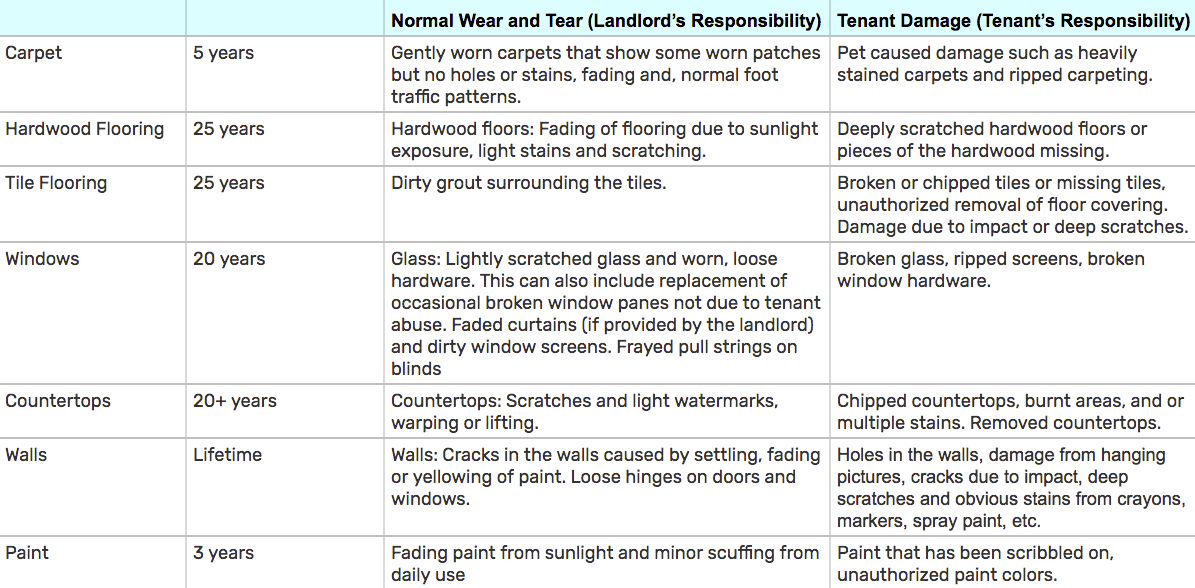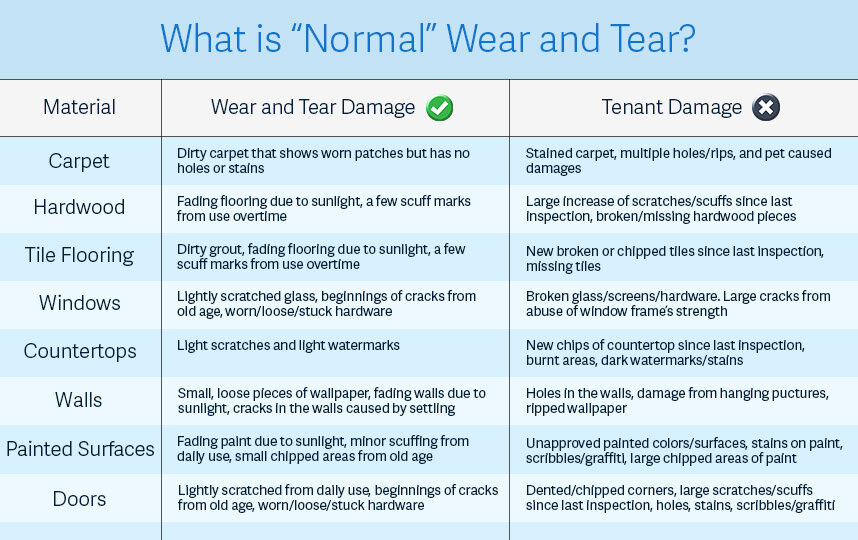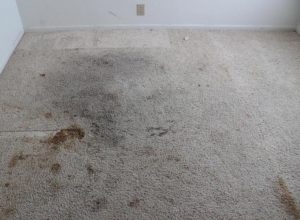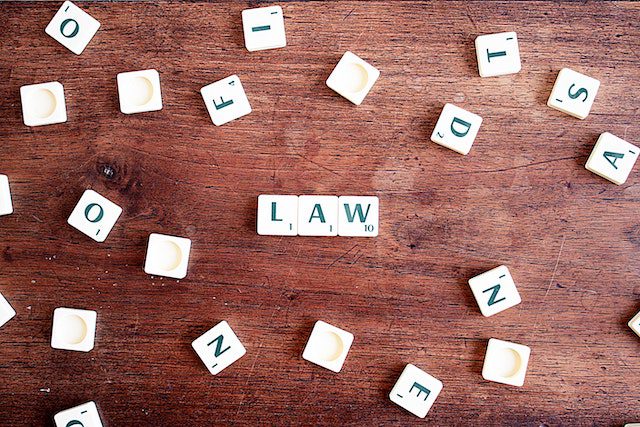The landlord may not assert a claim against the tenant or the security for damages to the premises or any defective conditions that preexisted the tenancy for ordinary wear and tear or the effects thereof whether the wear and tear preexisted the tenancy or occurred during the tenancy or for the cumulative effects of ordinary wear and tear occurring during any one or more tenancies.
Is carpet wear and tear security deposiy ca.
List of normal wear and tear examples for renters.
Landlords can t remodel the property on the tenant s dime.
Wear patterns on carpet.
For example if a tenant left the carpet stained dirty and or ripped then the carpet would be damaged beyond.
Normal wear and tear means the declining condition of the rental property that occurs over time even though the tenant has been regularly cleaning and maintaining the property.
The landlord can withhold from the security deposit only those amounts that are necessary and reasonable and not a result of ordinary and reasonable wear and tear for example a landlord may not make tenants pay for painting new carpets or curtains unless they are damaged beyond ordinary and reasonable wear and tear.
Security deposits are for the benefit and protection of the landlord in the event that something on the property is.
California tenants are not responsible for normal wear and tear to carpets.
A landlord cannot deduct the cost of repainting or replacing carpet from the security deposit for normal wear and tear or even when the walls and carpet have met the useful life terms.
The most common dispute between landlords and tenants is over the security deposit refund and whether damage is wear and tear.
Most disputes over security deposits come down to what constitutes normal wear and tear.
Scuff marks or worn patches on linoleum.
What is wear and tear.
Sometimes a security deposit is called a damage deposit and is generally some amount of money that the landlord is able to hold on to if a rental property needs any cleaning or repairs in order to return the property to the condition it was in when the renter first moved in.
When a tenant moves out of a unit the landlord may deduct from a tenant s security deposit to repair damage to the premises that is caused by the tenant but only for damage beyond ordinary wear and tear.
Landlords can only keep money from the security deposit for damages that are beyond normal wear and tear.
All rental properties are going to suffer some deterioration even with the best of tenants.
Also normal wear and tear to carpets drapes and other furnishings cannot be charged against a tenant s security deposit normal wear and tear includes simple wearing down of carpet and drapes because of normal use or aging and includes moderate dirt or spotting.








